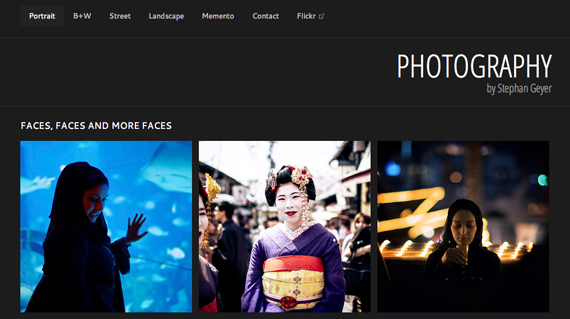As you think about becoming a professional photographer, it is easy to get caught up in taking photos. While this is important, it is also essential to have a checklist of what every professional needs. Here are five essentials:
1. Portfolio
A photographer’s portfolio is her most important asset. A portfolio should represent your best work, your style, and what the client can expect when they hire you. Important elements of a professional quality portfolio are:
- Theme. How do your images relate to each other?
- Quality. Only include images you feel showcase the best of your work.
- Style. As a set, the images you choose should show a defined photographic style.
- Perspective. Show your images to as many professionals as possible, and adjust based on their comments.
- Presentation. How you present your portfolio is as important as the images. If you plan to charge a lot for your services, make sure that is expressed through the way you present your images.
2. Brand
Part of any business is a brand image. With photography, where there are a ton of people who claim to be photographers with no real qualifications, it is important to distinguish yourself as a professional through a well designed brand. Important elements of your professional brand include the following:
- You. Everything about you is the first thing that defines your brand—from your voice, to your gestures, to your clothing. Be consistent and conscientiously create a powerful statement of who you are as an artist.
- Logo. Whether it is your name in a particular font or an image you have designed, create a custom logo and stick with it.
- Color. Choose a set of colors to use on all of your marketing materials.
- Font. Decide on a specific font that represents your brand.
3. Connections
Your social network has a huge influence on your success as a photographer. Always meet new people, maintain relationships, introduce people, and understand that almost all of the jobs you get will come from people you know. These are some of the most important elements of your professional network:
- Team. Build up a team of people you work with and do projects together. If you are doing fashion photography this is particularly important.
- Clients. Slowly build your base of clients by providing excellent service and images. Keep in contact.
- Business Associates. Meet other people in related fields that have a connection to your business. These people are invaluable in introducing you to potential jobs. Make sure to return the favor.
- Other Photographers. As odd as it may seem, you will often get work from other photographers. Whether they are busy and cannot take a job or it is not their specialty, other photographers are important connections.
4. Marketing Strategy
Your ability to market yourself well is an essential skill for any photographer. Understand the importance both of in-person networking and online social networks. Keep these two networks connected, stay in contact, and always be producing professional images to promote your business.
- Website. Having a website is essential to getting the word out about your business. Make sure it is professionally designed and connected to all of your social networks such as Facebook, Twitter, and YouTube.
- Business Card. These are essential. Hand one out whenever you meet a new person.
- Social Media. Social networks are great for getting the word out. Remember to tag people in photos, use a watermark, and quickly respond to comments.
5. Business Plan
Succeed where other photographers have failed by understanding that photography is a personal business. Do research on business practices and sales and apply them.
- Sales. Study how to sell yourself and your services. Sales is an art, and when used consciously, will exponentially increase your conversion rate.
- Contracts. Have all the contracts you need ready. Whether this is a model release, intellectual property agreement, or a contract for a specific job, contracts are essential for a professional.
- Costs. Keep track of all your costs and factor them in when deciding on your guarantee. Remember, although digital cameras are essentially free to use, they become outdated very quickly.
- Guarantee. Charge what the market dictates. Deciding on your guarantee is difficult. Do your research, ask other photographers, and put yourself in a good negotiating position by not relying on any one job.
About the Author:
Ryan Bruss is fashion and commercial photographer who provides information about how to use social media to boost a career as a professional photographer.
Like This Article?
Don't Miss The Next One!
Join over 100,000 photographers of all experience levels who receive our free photography tips and articles to stay current:









I agree that you need a logo but get it done by a pro (not from one of the design comp online either). It’s like people who do their own photography for their business – it generally turns out below par.
Excellent article. I agree with all those five points and would certainly stress the importance of Marketing your business to try and attract a specific, narrow target market instead of “casting too wide a net” in hopes to catch everyone (trust me – you won’t). That is one big think I believe a lot of photographers struggle with. Identify which type of clients you WANT to work with and cater your marketing and branding to attract those types of people.
Cheers!
Mark Thackeray